Semarang, November 18, 2025 – The Faculty of Social and Political Sciences (FISIP) of Diponegoro University, in collaboration with the Indonesian Elections Supervisory Agency (Bawaslu RI), successfully held a Bawaslu National Seminar focusing on the importance of data literacy in election monitoring with integrity.
The event opened with remarks from the Dean of FISIP Undip, Dr. Teguh Yuwono, M.Pol. Admin, who emphasized that the seminar served as a valuable learning platform for students. The direct involvement of Bawaslu experts was considered crucial in bridging the gap between theory and the practice of election monitoring in the field. Meanwhile, a representative from the Central Java Provincial Bawaslu highlighted the essence of the current digital era, where data is crucial and “talks more.” Therefore, emphasis was placed on precise and accurate data presentation for the sake of accountability in monitoring.
A key moment in the seminar was the symbolic handover of the Cooperation Agreement (PKS) between the Faculty of Social and Political Sciences (FISIP) of Diponegoro University (Undip) and the Indonesian Elections Supervisory Agency (Bawaslu). This collaboration encompasses three main pillars: data literacy and the development of Bawaslu’s One Data Portal; utilization of datasets for academic purposes; and opportunities for joint research and innovation. The handover of this PKS significantly opens up broader collaboration between academic institutions and election supervisory bodies to produce more robust studies and supervisory practices.
The Head of the Department of Politics and Governmental Science, Dr. Nur Hidayat Sardini, S.Sos., S, H., M.Si., in his introduction to the theme, emphasized that the current focus must be on implementing the principles of Electoral Governance. The goal is to ensure that election supervision in Indonesia is better prepared and effective, thus producing elections with integrity. Henry Dwi Prastowo, Head of the Bawaslu Data and Information Center (Kapusdatin), presented material on Election Supervision Data Literacy. He ensured that Bawaslu’s data is equipped with detailed metadata. It is hoped that this data can be used as research material for students and form the basis for continued collaboration in developing election monitoring data.
The event continued with a presentation by Dr. Puadi, S.Pd., M.M., a member of the Indonesian Elections Supervisory Agency (Bawaslu) and the Coordinator for Violation Handling, Data, and Information, introducing his book, which discusses the crucial importance of data literacy for increasing accountability in election monitoring reports. This book focuses on understanding election patterns, which serves to strengthen election monitoring capacity. The main event, a book review moderated by Hanifa Maylasari, S.IP., M.Sos., (Lecturer in Government Science at Diponegoro University), featured four critical commentators:
The first commentator, Dr. Yance Arizona, a Constitutional Law expert from Gadjah Mada University, assessed the book as relevant not only for academics but also as a reflection on Bawaslu’s role in overseeing free and fair elections. The book’s main themes are categorized into five crucial issues: updating voter data; the nomination of former convicts as legislative members; campaigning in educational settings and the neutrality of civil servants; money politics in campaigns; and the 30% quota for female legislative candidates. Meanwhile, the second respondent, Dr. Khairul Fahmi, an expert in Constitutional Law at Andalas University, reiterated that Bawaslu’s role must remain as an institution that carries out election oversight functions, not as an election judicial body.
The third respondent, Nuruddin Al Akbar, M.A., a lecturer in the Department of Politics and Governmental Sciences, Faculty of Social and Political Sciences, Diponegoro University (FISIP), linked the task of election oversight to Immanuel Kant’s theory of duty-based morality (deontology). This principle encompasses the view that human dignity should not be violated (e.g., money politics demeans voters, and the 30% quota for women should not be merely an administrative requirement), and norms must be universally applicable (election supervisors are required to act impartially), which is highly relevant to the demands for consistency and independence in oversight. The fourth respondent, Lusia Astrika, S.IP., M.Si., a lecturer in the Department of Politics and Governmental Sciences, Faculty of Social and Political Sciences, Diponegoro University (FISIP), examined the book’s perspective on Bawaslu’s role in the context of postmodern elections. In postmodern elections, the boundaries of violations are often blurred, so oversight cannot be based solely on regulations but also requires in-depth interpretation.
The seminar concluded with the presentation of souvenirs to all participants and a joint documentation session. Overall, this activity successfully emphasized the urgency of collaboration between stakeholders, strengthening electoral governance, and increasing data literacy as key assets in realizing elections with integrity, accountability, and dignity.

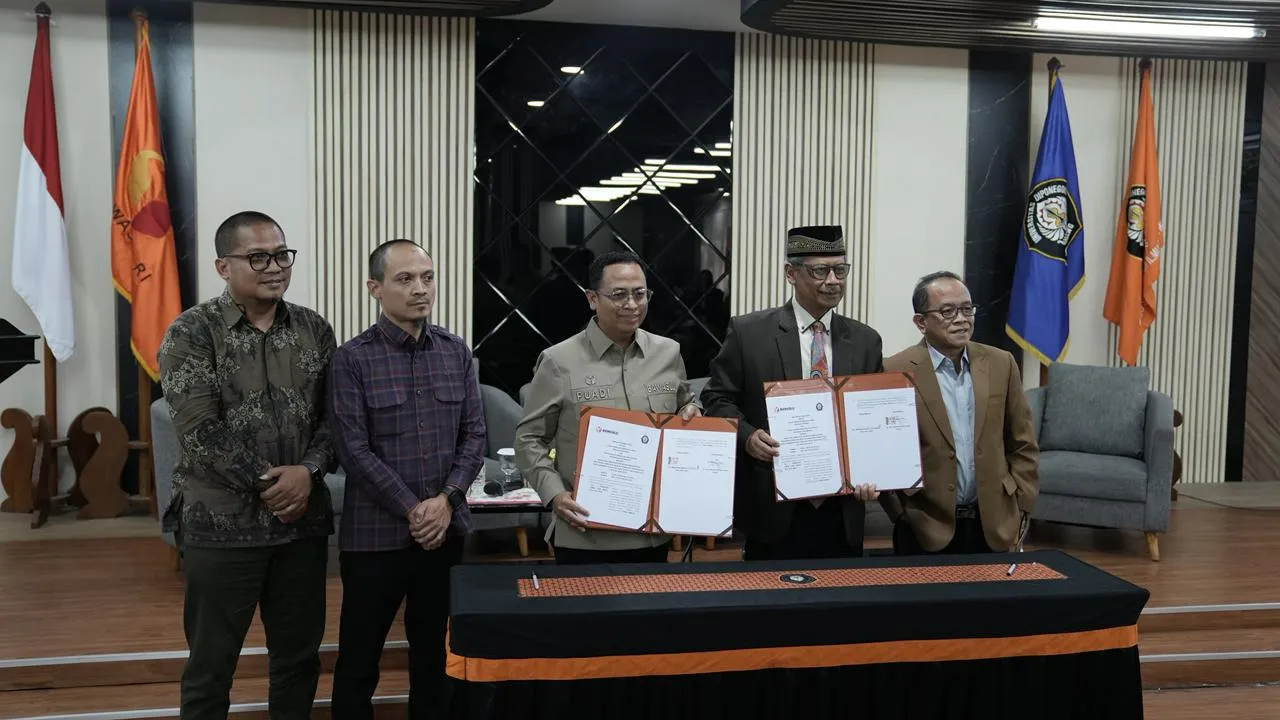
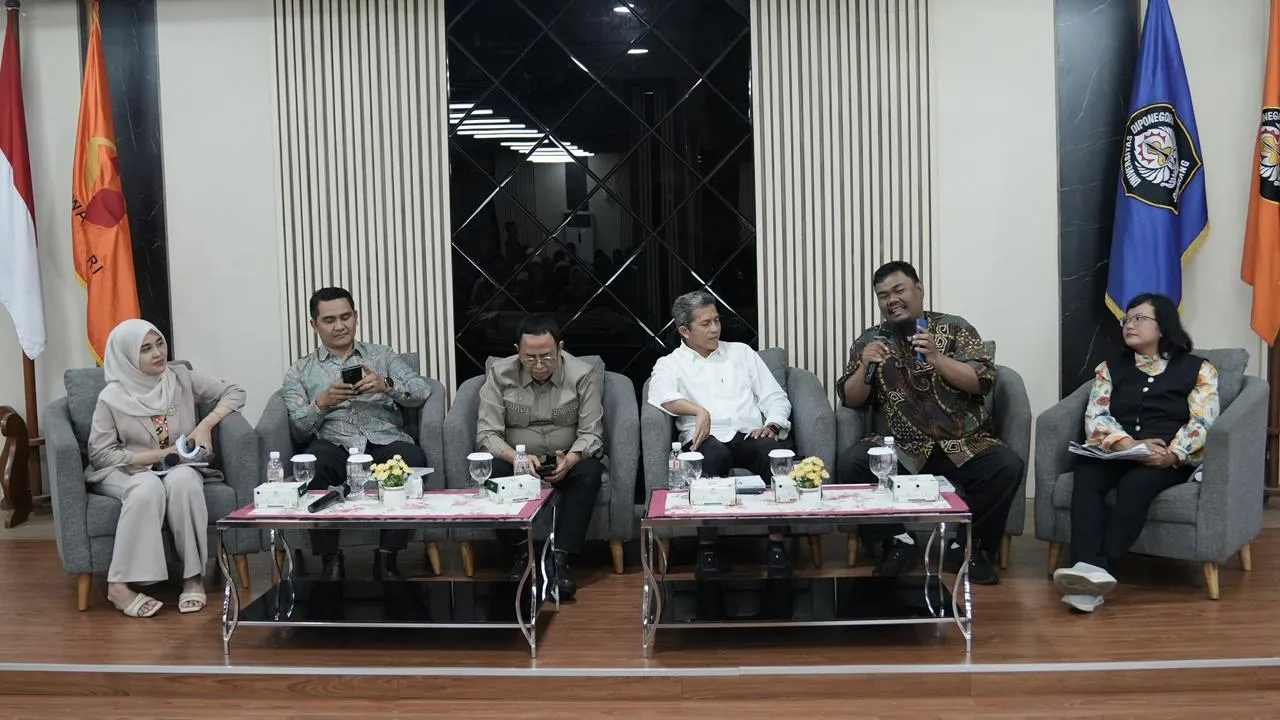
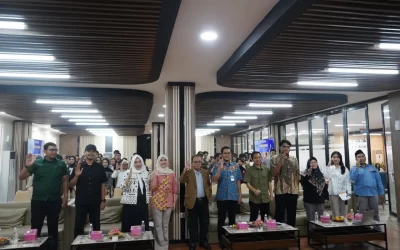
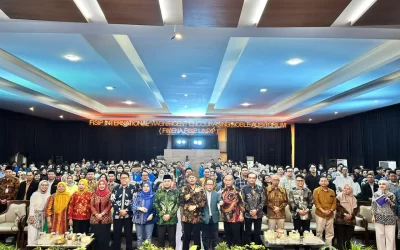
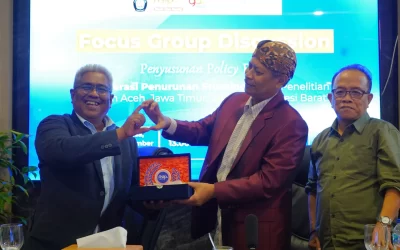
0 Comments